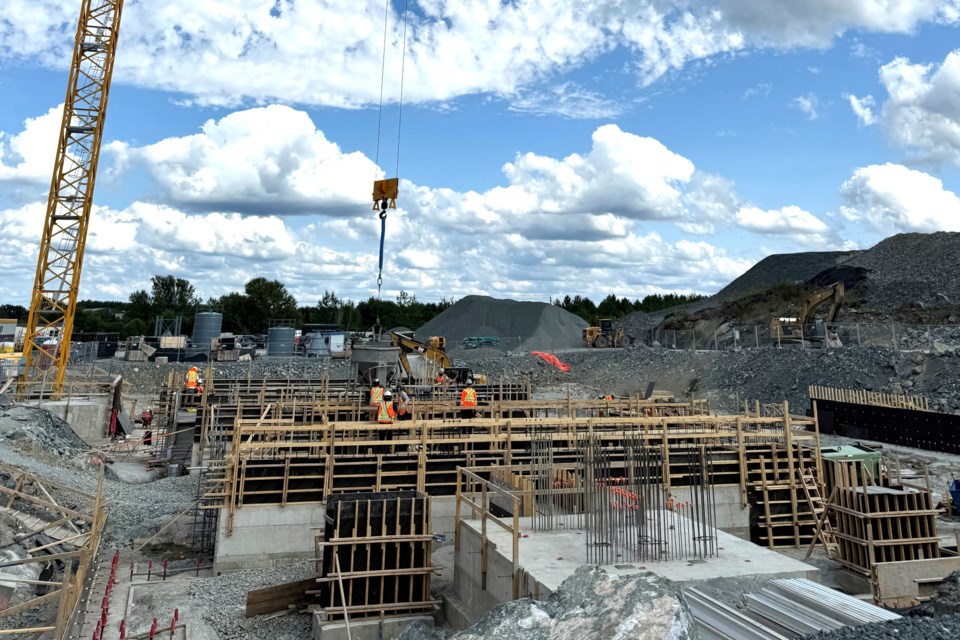No time is a good time for trade wars, but this is a particularly problematic moment for the United States to throw a wrench into the works.
So described Sudbury District Home Builders Association president Derek Cashmore in conversation with Sudbury.com on what happens if 25 per cent tariffs take effect.
The local construction market is currently booming, he said, particularly when it comes to residential builds.
“We were just about to see the big boom,” he said. “Things are just starting to catch fire where we can make a real impact.”
By the end of the third quarter of 2024, the City of Greater Sudbury issued 833 permits for new housing units. Last year’s assessment growth of 1.2 per cent exceeded the city’s initial estimate of two per cent.
This within a climate in which Mayor Paul Lefebvre has pledged a goal of growing Greater Sudbury’s population to 200,000 by 2050 and getting more houses built to accommodate it.
With impending tariffs slated to cast future projects into financial uncertainty, it’s unclear whether this upward trend of assessment growth will continue.
U.S. President Donald Trump has pledged to introduce 25 per cent tariffs on Canadian exports to the United States and 10 per cent duties on energy, such as oil.
Prime Minister Justin Trudeau threatened a retaliatory 25 per cent tariff on $30 billion in U.S. goods originating from the United States. Another $125 billion in tariffs would follow. Premier Doug Ford has similarly said Ontario would “hit back hard.”
These tariffs and the uncertainty they create will have a “ripple effect,” Cashmore said.
Although he doesn’t believe it will cause anyone with shovels in the ground to pull out of their projects, it could be enough to delay projects on the cusp of breaking ground while builders wait out market disruptions.
Prices on construction materials shouldn’t jump immediately, Cashmore said, adding that he anticipates a gradual increase during the coming weeks.
As for those builds that proceed in the midst of potentially skyrocketing prices, whatever additional expenses builders incur will trickle down to the end consumer in the form of rental rates or purchase cost.
It’s not all doom and gloom, with the marketplace course correction Trump has thrust upon Canadians likely pushing consumers toward purchasing homegrown goods, Cashmore said.
The Canadian lumber market might be forced to sell more within their native country, which could drive down prices until new trade partners are shored up, he added.
A lot of the lumber local builders use is already from Canada already, Cashmore said, noting that only certain building materials, including specialized components, more routinely come from the United States. As such, it won't be a straight 25 per cent jump in overall building costs once tariffs come into play.
Meanwhile, since brief delays at construction projects’ planning stage typically translate to much more significant delays at the jobsite, Cashmore said that it behooves governments to bring an end to the tariffs as quickly as possible.
This, he said, is what the Sudbury District Home Builders Association is pushing for, and encouraging others to similarly advocate.
“Rising material costs and project delays could make housing less affordable and slow down critical infrastructure development,” Cashmore cautioned in a media release the association issued.
“The SDHBA recognizes the importance of fair-trade policies that support a strong and sustainable construction industry,” according to the media release. “The association will continue to monitor the situation closely, engage with industry stakeholders, and work alongside government partners to mitigate any negative impacts on local builders and homeowners.”
Tyler Clarke covers city hall and political affairs for Sudbury.com.




